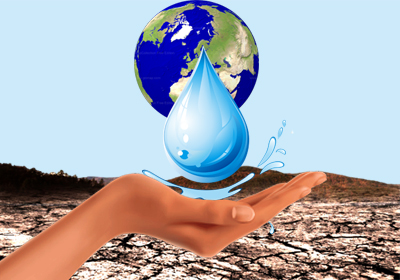
World staring at imminent water crisis risk: UNESCO
Unless there is a substantial rise in international cooperation, the world is likely to face a worsening water crisis in the coming years, especially in the urban centres, UNESCO and UN-Water warned in the latest edition of the UN World Water Development Report
Pointing out that over a quarter (26%) of the global population is deprived of safe drinking water, the report published by UNESCO on behalf of UN-Water and released on March 22, 2023, at the UN 2023 Water Conference in New York noted that almost half (46%) of people across the world lack access to safely managed sanitation.
According to the report, water scarcity affects between two and three billion people for at least one month per year, presenting a serious threat to livelihoods, particularly food security and access to electricity.
Noting that extreme and prolonged droughts are also stressing ecosystems, with disastrous effects for both plant and animal species, the report further noted that the global urban population confronting water scarcity is expected to more than double by 2050, from 930 million in 2016 to 1.7-2.4 billion people.
“There is an urgent need to establish strong international mechanisms to prevent the global water crisis from spiralling out of control. Water is our common future, and it is essential to act together to share it equitably and manage it sustainably,” the Director-General of UNESCO, Audrey Azoulay, said while speaking at the conference.
“There is much to do, and time is not on our side,” Chair of UN-Water and Director-General of the International Labour Organisation, Gilbert F. Houngbo, said.
“This report shows our ambition, and we must now come together and accelerate action. This is our moment to make a difference,” he added.
Pointing out that international cooperation is the key to access to water for all, the report noted that nearly every water-related intervention involves some kind of cooperation.
Stressing that growing crops requiring shared irrigation systems among farmers to provide safe and affordable water to cities and rural areas is only possible through communal management of water supply and sanitation systems, and cooperation between these urban and rural communities is essential to maintaining both food security and uphold farmer incomes, the report stated.
The report further pointed out that only 6 of the world’s 468 internationally shared aquifers are subject to a formal cooperative agreement, despite cooperation over transboundary basins and aquifers having been shown to deliver many benefits beyond water security, including opening additional diplomatic channels.
Reiterating that boosting international cooperation is the only way to prevent a global water crisis in the coming decades, the United Nations called upon countries to work together to avert the looming crisis.